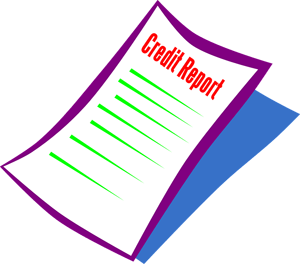What is FICO credit score? What is a good FICO credit score, and how can we maintain good credit score? Here is a simple guidance for you to avoid problems when you take up a mortgage or make a purchase on loan.
 What Is FICO Credit Score?
What Is FICO Credit Score?
FICO, formerly known as Fair Isaac Corporation, issues credit reports for US lenders, by using a scoring system. It is a measurement of your creditworthiness. The score number ranges from 300 to 850, generally the higher the lower the risk. The report helps the lender to consider your credit/loan application.
What Is A Good FICO Credit Score?
The score is determined mainly by your payment history, amounts and length of money you’ve owed, and types of credit in use.
 #1 Good Payment History
#1 Good Payment History
Upon reviewing your credit or loan application, the first thing the lender would like to know is your payment history – whether you’ve made your repayments on time. This includes your monthly mortgage payments, credit cards, department store cards and other any other contractual loan repayments.
If you’ve failed to make payments on time in the past, how it affects your FICO score depends on how late they were, how often, how much and how recently they occurred.
#2 Good Debt Management
Lenders may consider your salary, occupation or employment history, therefore whether the level of your debt is high or low depends on how much your monthly income is. However FICO scores ignore your salary or employment status and history.
Instead, the score considers how you manage your current given credit limit. The total balance on your last statement is the amount that will show in your credit report, even if you pay off your cards in full every month.
Having a small balance without missing a payment indicates you are managing your credit responsibly, whereas having numbers of accounts with balances mean you have higher risk of over-extension.
This means opening several credit accounts in a short period of time can imply greater risk.
 #3 Established Credit History
#3 Established Credit History
The longer your credit history is, the better FICO score is, providing 1 & 2 above are maintained, i.e. constant repayments on time, and not having too many credit accounts. Of course, if you have not been using credit long may get high scores.
Good Credit Score
Your lender may be able to give you their threshold policy, such as above 680, above 730 and so on. Otherwise it is hard to say what the “good credit score” is, as it all depends on the type and scope of the credit that’s available for each lender to offer.
How To Maintain A Good Credit Score
 To summarise, you keep your credit under control if you;
To summarise, you keep your credit under control if you;
- constantly make your repayment on schedule
- don’t have many different credit accounts
- don’t open several credit accounts in a short period of time
- try not to pay everything on credit card, even if you repay every month in full
Therefore it is important to open new accounts responsibly; many credit companies offer lower interest rates, discounts and cash-back. While these offers may benefit you, opening accounts unnecessarily will lower the FICO score.
Check Your Own FICO Credit Score
It is important to check your FICO Score well before you plan to take a considerable amount of loan, such as a purchase of a car or home. It is said that 6 months in advance would be sufficient – it will give you time to take actions to improve your score if necessary.
By improving your credit score, you will receive better credit offers, potentially with lower interest rates, and your application will be approved quickly.
So How Do We Find It Out?
There are global information service companies who provide data and analytical tools to its clients around the world, such as Experian and MyFICO, where you can pay a small fee and receive your credit report and FICO score. Also with a continued membership, you’ll get notified when key credit changes occur. Track your FICO score over time and learn what factors my impact the score.
Is It Worth It?
I think it is worth it. I have decided to write this article because of William, one of my best friends’ recent experience. Will has allowed me to write this story – his mortgage application was rejected because of his bad credit score. He is a very wealthy accountant and has enough cash to buy a reasonably big house in town without taking up a mortgage.
18 months ago Will quit the job, sold his house and travelled all around the world, now is back in his hometown, got a great job right away. He found an awesome 3 storey house and decided to put 70% deposit, and borrow 30% of the house price. But his FICO score was too low. His application was turned down.
It was the fact that he didn’t have a fixed address while he was travelling. Also for conveniences he was carrying many credit cards (Visa, Amex, MasterCard and JCB), he’d always managed his finances well, but missed a few repayments while travelling.
Will laughs about it now, he’s a reputable professional accountant who is labelled cannot look after his own finances! He’s opted to pay 100% cash for the house he fell in love with – something not many of us can do!
